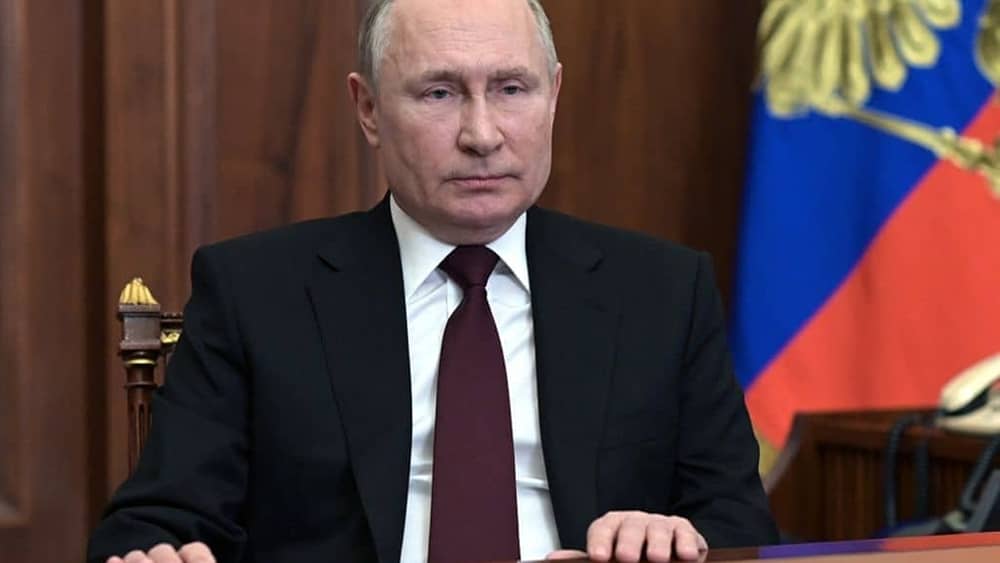Pushing Russia out of Swift, the international bank transfer system, has long been spoken of as one of the most forceful economic moves the West can make. Only last week Joe Biden suggested the idea was off the table as the Europeans did not want to do it, with so many countries dependent on Russia’s natural gas. But after frantic negotiations, we have movement. The USA, UK, European Union and Canada have agreed plans to cut at least some of Russia’s banks out of the Swift as well as to work to stop the Russian central bank from accessing its vast reserves, estimated to total roughly $630 billion. But will this round of response get Vladimir Putin’s attention?
It may not be Swift, the pipeline or sanctions that turn out to be the West’s strongest economic play
One of the difficulties, so far, has been the discovery of just how prepared Putin was for the economic pain. Russia’s international reserves are the fourth biggest reserve pile in the world, equivalent to 40 per cent of the country’s GDP: designed to allow Russia to withstand at least short-term economic pain.
Germany’s suspension of the $11 billion Nord Stream 2 pipeline will have been a blow to Putin, as the pipeline was Russia’s most immediate opportunity to vastly increase state revenue from its gas reserves. But with an energy crunch already underway throughout the West, Putin’s calculation that Europe wouldn’t cut off its current Russian gas imports has broadly proved correct. In the words of Biden, the sanctions agreed by the West so far have been ‘specifically designed to allow energy payments to continue.’
Last night’s decision to remove a handful of Russian banks from the Swift network comes with its own risks. Making it harder for other international groups to do business with Russian banks will be a sting for the Russian economy, but Putin has been preparing for this scenario too, building a domestic alternative to Swift for the better part of a decade. What worries UK officials now is that by further removing Russia from Swift, it becomes an increasingly likely target for retaliation. Unlike Russia, the UK economy is hugely reliant on Swift, and a cyberattack would cause far more damage to London now than it would to Moscow. Germany, which has relied on Russia for almost half of its gas imports over the past few years, is perhaps the most exposed to a Swift expulsion: if it cannot pay Gazprom – Russia’s state-owned energy company – Putin can be expected to turn off the taps.
That western countries are increasingly willing to take this risk suggests both a commitment to put incrementally more economic pressure on Russia as Putin’s tanks move further into Ukraine, as well as an increasingly united front between countries like the US and Germany that didn’t exist as recently as a month ago.
But it may not be Swift, the pipeline or sanctions that turn out to be the West’s strongest economic play. In the words of EU Commission president Ursula von der Leyen, plans to ‘paralyse the assets of Russia’s central bank’ may be what starts to cripple Putin’s plans. For Russia’s $630 billion worth of reserves – well-diversified in hard metals, bonds, and securities in a variety of foreign currencies – to be of much use to Putin, they will eventually need to be converted into local currency, used to prop up the Russian economy when its businesses are cut off from major markets.
Working to freeze a good chunk of these reserves would start to limit Putin’s ability to bail out his country when the rest of the world is working to tank its economy. Such economic hardship would be difficult to overcome at the best of times, but would be made especially tough when it’s not at all obvious right now that Putin has the backing of his own citizens to be waging an unprovoked war against Ukraine.







Comments